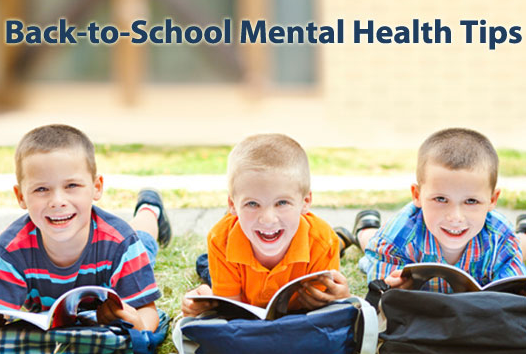Starting a new school year can be stressful and anxiety inducing under normal circumstances, and this year is anything but normal. Many of our students are returning face-to-face for the first time in 18 months. The rules and expectations are uncertain. Do I mask up or do I not? Should I be vaccinated? How close can I stand to someone now? Remember when the biggest worry we had was which outfit to wear for the first day of school? Our children and teens are facing so much more as they begin the 2021-2022 school year. So, forget about the pens, highlighters and binders and make sure you stock up on these mental health supplies for the children and teens in your homes and communities.
> Solid Sleep Schedule (In teens especially, sleep is often neglected and can make such a huge difference in one’s ability to manage anxiety and mood symptoms. The American Association of Pediatrics recommends 9-12 hours nightly for ages 6-12 and 8-10 hours nightly for ages 13-18.)
> Mindfulness Techniques (May need to “try on” a few before finding the right fit. Some examples include deep breathing, counting heartbeats, squeezing and releasing and meditation.)
> Listening Ears (Provide a safe space for talking about any concerns or feelings or questions.)
> 3 Healthy Meals Per Day (Just like sleep, proper nutrition can have a huge positive impact on one’s ability to cope.)
> 1 or 2 Hobbies or Activities (The options here are endless. My personal favorites are reading, hiking, and playing with Legos)
It’s just a basic starting list, but hopefully some of these tools can help make a big impact in how your children and teens are able to navigate this uncertain year. Make sure to also look out for signs that they may be running low on “supplies”. Warning signs can include: problems with concentration or memory, changes in appetite, loss of interest in things that they used to enjoy, irritability or restlessness, changes in sleep, not wanting to be around people or take part in activities, and changes in how they dress. Don’t hesitate to seek help if needed.
Here are some local resources:
https://www.cobbcsb.com/child-adolescent/
https://namiga.org/support-and-education/programs/
https://www.georgiacollaborative.com/providers/georgia-crisis-and-access-line-gcal//
Many high schools also have clubs that support student mental health, so be sure to check out resources in your child or teen’s home school as well.
With just a little bit of preparation, intentionality and education, even during this challenging season, we can make a big impact in the lives of our youth and help them achieve and maintain mental wellness.
This article was written by Briahnna Villegas, RN, BSN, Behavioral Health Manager, Good Samaritan Health Center of Cobb. It originally appeared in the “Mind Your Mind News” which is published by the Cobb Collaborative.







